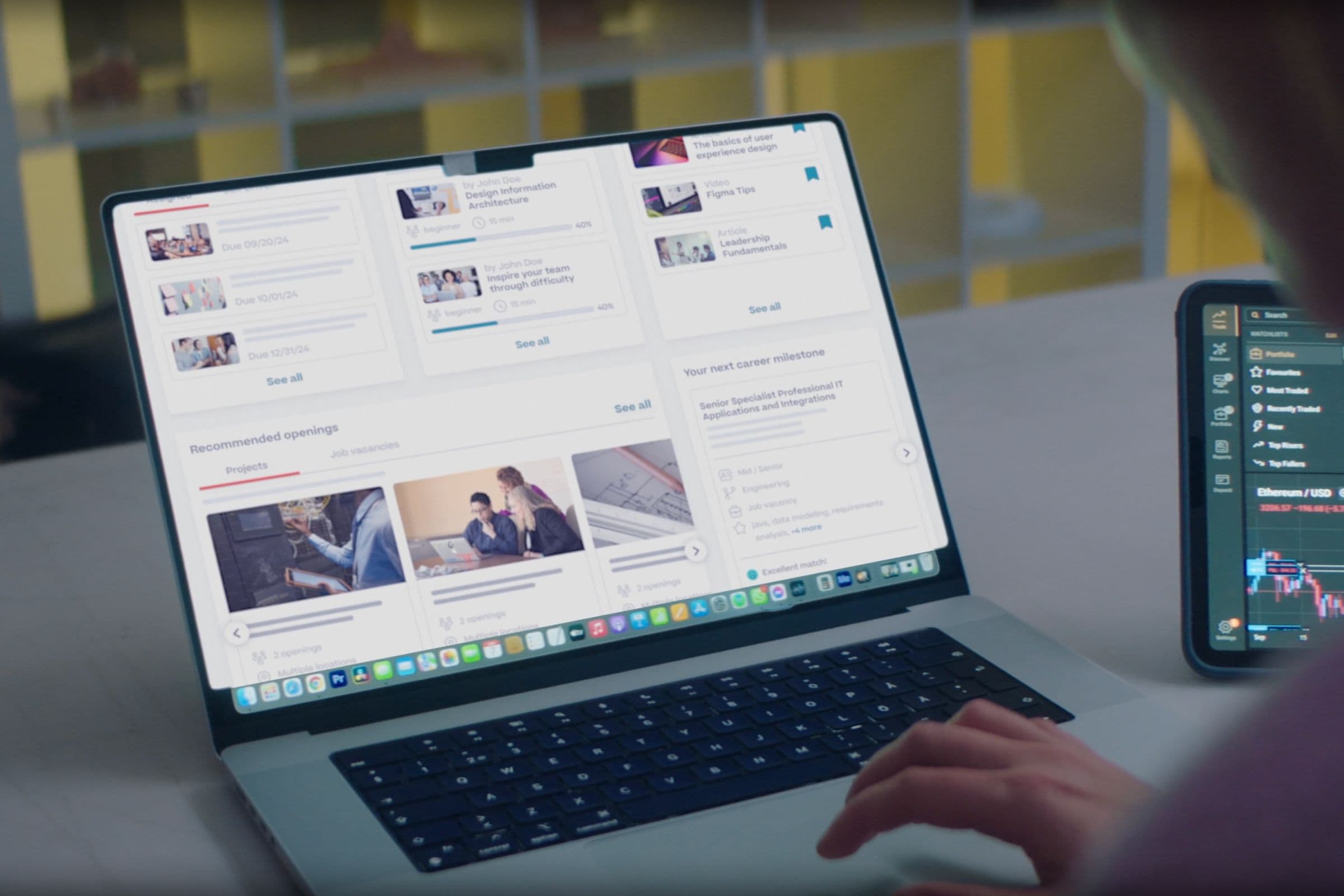Key Takeaways
- Employee experience is about empowerment, appreciation, and meaningful work, as highlighted in a recent workplace happiness study.
- Leadership buy-in is crucial. To improve work environment, top management must align with and champion cultural changes, stressing the importance of starting with small changes.
- Utilize technology for a better experience. Employee experience specialists face the challenge of educating others about the value of using technology and tools to manage programs effectively.
The war for talent has companies of all sizes focused on creating compelling employee experiences that will not only help them attract top talent, but also prevent current star performers from exploring outside opportunities.
As the idea of "employee experience" design has evolved, it's become focused on much more than access to great perks and a fun work environment. A recent study on workplace happiness by staffing firm Robert Half found that job satisfaction is most influenced by having a sense of empowerment, feeling appreciated and being able to do meaningful and interesting work.
Many employers are hiring dedicated "employee experience" managers to ensure they can meet these expectations. We recently interviewed three such specialists to learn more about this emerging and challenging profession. Here's what they had to say:
How did you get involved with employee experience management? I started at PAR about five years ago as a technical writer. I fell into my current role not long after I became the chair of PAR's employee-run culture committee. Our vice president of HR noticed that other companies had dedicated resources to improving culture and the employee experience and thought it was time for PAR to do this, too. I said I'd love to have that role and listed all the reasons I thought I'd be good at it. And here I am today!
What is the most challenging part of your job? Initially, it was defining the kind of culture we wanted. The trick now is to "walk the talk" and to live the core values we have defined every day—otherwise, they're just words. Another major challenge is creating a consistent employee experience for our people, at all levels of the company and in locations across the globe, centered on having respectful and trusting relationships with team members and management. That is probably one of the most challenging things I've ever had to do in my career.
What's your best piece of advice for other companies trying to improve their work environment? Top leadership must be totally bought into changing the culture for the better. Without that alignment at the top, it's very hard to make long-lasting, meaningful change. Change is hard, and it doesn't happen overnight. I recommend starting with small changes or focusing on areas where you know you can move the needle a bit and then build on that.
How did you get involved with employee experience? I have a customer service and relationship management background, so I've always been very people-focused in my career. One reason I wanted to join Espresa is its mission, which is empowering companies to do more for their people. My role is primarily external-facing. I work with employee experience specialists, HR leaders, administrative staff and others to help them develop programs for building a better culture and employee experience at their companies.
What current experience, initiative or project are you most excited about? Our company developed a platform that helps employers manage their on-site programs, events, team-building exercises and more to ensure those efforts are having the desired impact. One new initiative I'm excited about is a rewards and recognition program that helps companies acknowledge employee milestones, like work anniversaries or workplace achievements. Employees can choose rewards that are meaningful to them.
What is the most challenging part of your job? Educating other employee experience specialists about the value of using technology to help them build and manage their programs. Employee experience is an emerging space, and many organizations have only recently started using tools like HR analytics. Another challenge—which I think most employee experience professionals face—is helping financial decision-makers understand the business benefits of investing in these types of programs and tools.
What current experience initiative or project are you most excited about? Our company was recently acquired, and the new owners and leaders are motivated to build a culture that is not only customer-focused but also employee-focused. My manager and I recently finished analyzing our first company-wide employee feedback survey. I'm now creating a report to communicate the survey results, and explain what initiatives our department is working on and when. It's exciting because showing employees that you are listening to them. Making changes based on their feedback is crucial for significantly improving employee experience and engagement. I plan to share feedback reports consistently as we implement changes.
What is the most challenging part of your job? My job is exhilarating, incredibly rewarding and always interesting. But it can be challenging not to take on too many things at once. When you first start in this position, you need to learn quickly what to prioritize based on the needs of multiple company stakeholders. Having patience, objectivity and the ability to build relationships, and consensus, with people throughout the company are useful qualities for this position.
What's your best piece of advice for other companies trying to improve their work environment? Your team members are your most valuable assets. Ask for their feedback regularly and let them know how you intend to apply their feedback. Also, encourage and empower employees to lead and reward their efforts. If they fail, challenge them to try again. And when implementing any initiative or program, be sure to consider the potential impact of those changes on the company and its customers.
Photo: Creative Commons


